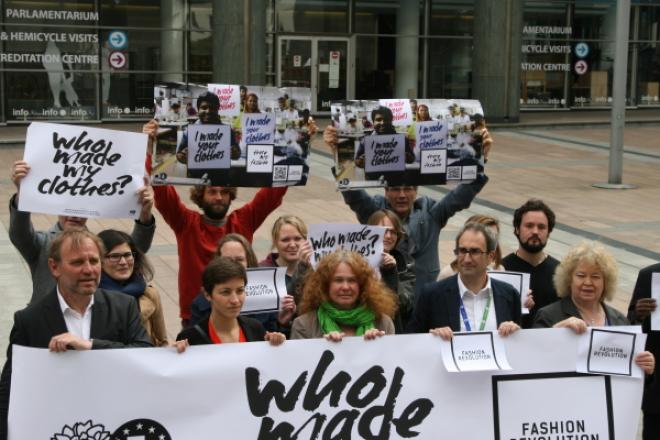Fast Fashion

Rana Plaza Commemoration March by Greens/EFA Group is licensed under CC BY 2.0, via Wikimedia Commons
Resource Description
Who doesn’t want to be fashionable? Fast fashion is quickly becoming one of the world’s biggest problems. The fashion industry is creating more clothing than we can use, most of it of lower quality, and many of which ends up in landfills. Consumers buy this cheaply made clothing following fashion trends, but the garment breaks or we grow tired of it, and we donate it. What happens to the clothing we donate? It has been said that after oil, the fashion industry is globally the most polluting industry. This module explores the global impacts of fashion consumerism, the impact on local economies, and its effects on the environment.


